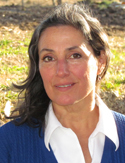As a lawyer and mediator, and student, teacher, and director at the School of Metaphysics, I have observed how people react to situations from the perspective of their memories. Most family disputes over inheritance and much of the fighting that occurs in divorce cases are results of people reacting in the present to feelings and experiences from the past.
Have you ever experienced a memory-based reaction that got in the way of your making a decision that should have been based on what was actually occurring at that time in your life? I am talking about reactions that were irrational and out of proportion to the current event. This type of reacting gets in the way of reasoning, but most people are not aware that they are reacting to a memory.
One of your most precious gifts is free will, which is the freedom to use your will to choose what is best for you. However, there is no free will if what you choose is only to react to someone or something in your past.
Learning to quiet my mind and concentrate while I’m feeling strong emotion has taught me how to receive what is actually happening around me and within me. One tool I used to learn how to concentrate and be more aware is from a simple exercise given on page 17 ofConcentration, by Dr. Laurel Clark.
- Each day, choose one activity to which you will give your undivided attention, noting with all five senses what you perceive. For example, if you are washing the dishes, first eliminate as many distractions as possible. Notice the sound of the water as you fill the sink, see the bubbles form from the dish soap, feel the warmth of the water and hear the sound of the dishes moving in the water as you wash them. “With undivided attention such a seemingly mundane activity becomes one of concentration and fulfillment. In this practice you are giving attention to each sense individually. Eventually, with more practice you will develop the ability to draw all thought toward a single point and your senses will blend into one thought-perception called knowing.” *
My regular practice of concentration as part of my meditation preparation is paying off by giving me the freedom to be the person I desire to be, instead of one who just unconsciously reacts to situations. I invite you to experiment with this concentration exercise. You, too, can learn to be calm, to concentrate, to reason, and to be intuitive in the face of strong emotions.
Here I share an example of how I used this concentration tool:
- I arrived two minutes late to an early-morning recitation of the Universal Peace Covenant, which is recited daily at the Peace Dome on the campus of the College of Metaphysics. When I arrived, I found that the leader had started the recitation without me. I walked in, sat down, and was surprised to find myself feeling very angry. While the others recited the Peace Covenant, I sat in silence. As I chose to observe what I was experiencing, I noted that I felt angry and hurt and that I wanted to blame my anger on the leader for not waiting for me. But I knew that I had arrived two minutes late.
After the recitation and reading were over, I spent a moment wondering why I felt so hurt and angry. After a simple prayer in which I asked for help to understand my emotions, I sat still and without thought. As I sat there, the memory of being late and running to meet my friends to go to a basketball game came into my mind. I was thirteen or fourteen years old at the time, and as I was running to meet my friends, another friend driving a truck pulled over to them. I watched my friends get into the truck and leave without me. I was devastated. The anger I was feeling now was an echo of how I was feeling then.
After receiving this memory, I was able to separate what happened when I was a child from what was happening now. I could acknowledge that I was no longer thirteen years old. Now I am an adult woman who made a choice this morning that resulted in my being late. Now freed from my memory-based, confusing feelings, I could interact with friends and associates.
When I calmed my mind, I was able to open my heart to receive the memory of being hurt at age thirteen. As I accepted responsibility for my choices now, I could relax. I no longer felt hurt or angry and lost any desire to blame someone else for my experience. I experienced the exhilaration of freedom. I was no longer a slave to my emotions.
You can learn to be fully aware of what is happening and to open your heart, and I here use the word “heart” to mean your inner voice, the soul, the place where wisdom is stored and available for guidance.
* Quote from Concentration by Laurel Clark (published by SOM Publishing, 1995) is used with permission.
